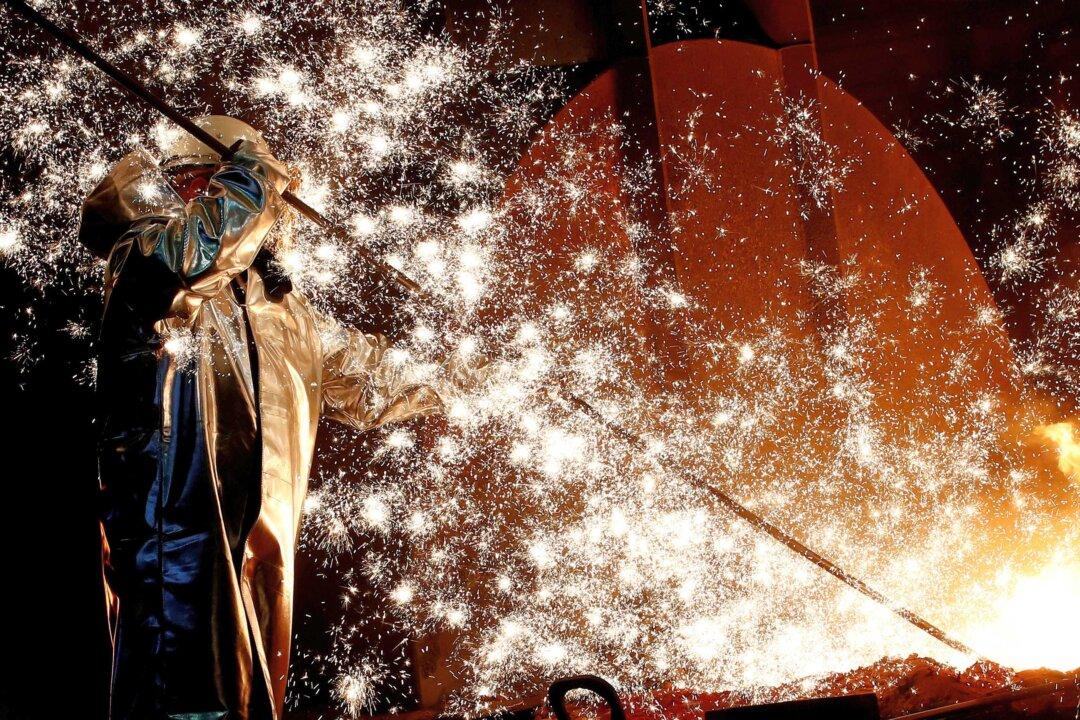BERLIN—German industrial production unexpectedly fell in September, official data showed on Friday, as supply bottlenecks for raw and preliminary materials continued to take a toll on output in Europe’s biggest economy.
The Federal Statistics Office said industrial output fell by 1.1 percent on the month after an upwardly revised drop of 3.5 percent in August. A Reuters poll had pointed to a rise of 1 percent in September.





